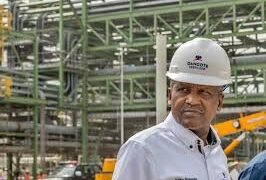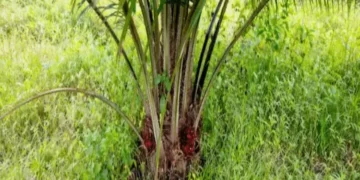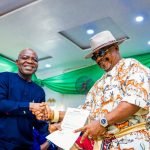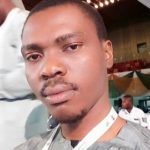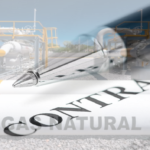In June President Muhammadu nominated Dr. Ngozi Okonjo-Iweala as Nigeria’s candidate for the office of the Director-General, World Trade Organization (WTO). Her nomination comes after the current DG of WTO, Roberto Azevedo had announced on 14 May 2020, that he will resign as the Director-General of the World Trade Organization on 31 August the same year, just a year before his second 4-year term as WTO’s Director-General expires.
Dr Okonjo-Iweala has received several endorsements which includes, House of Representatives of Nigeria, The Hon Julia Gillard AC, 27th Prime Minister of Australia, Economic Community of West African States (ECOWAS), Ellen Johnson Sirleaf, 24th President of Liberia, African Women Leaders Network (AWLN) among others.
She has given her take on the challenges facing the WTO. She also outlined her qualifications to lead and her visions for WTO.
She said that the WTO rule book has not caught up with contemporary issues such as digital trade, competition policy, trade and environment/climate change.
Dr Okonjo Iweala said that she can bring a fresh pair of eyes to the WTO’s challenges. She pointed out that enhancing and renewing the organization will require recalling the core objectives and principles on which the Multilateral Trading System (MTS) was built – the value of open trade, competition and non-discrimination, security and predictability of market access, fair trade and transparency.
She concluded by emphasizing the importance of the WTO at this critical, uncertain and challenging time in the world. The WTO is needed to ensure trade and global markets remain open she said.
THE CHALLENGE WE FACE
Dr. Okonjo-Iweala said that, “the challenges facing the WTO did not start with the current pandemic, although it has exacerbated them and exposed the fragility of the MTS. The negotiating function of the WTO has not produced many multilateral outcomes since its establishment in January 1995 and currently appears largely immobilised, prompting several Members to initiate plurilateral negotiations on specific issues at the WTO. The dispute settlement system, considered a fundamental pillar providing certainty and predictability to the MTS, is now in question as a result of disagreements over the Appellate Body.
“Members’ views differ on a number of fundamental issues, such as special and differential treatment or the need for WTO to tackle new issues and develop new or enhanced rules, and trade tensions among the membership have flared up. Unfortunately, the WTO is now perceived by some as an inefficient organization that has failed to keep abreast of developments in the global economy. The WTO rule book has not caught up with contemporary issues such as digital trade, competition policy, trade and environment/climate change.
“These challenges are unprecedented and will require strong engagement and commitment from all – negotiators, policymakers, Ambassadors and Ministers of all WTO Members – in order to reverse the WTO’s decline and ensure that it is enhanced and renewed. This is the only way the WTO can meet current challenges, produce concrete results, and better respond to the needs of Members of all sizes and levels of economic development. It is the only way it can keep opening markets and facilitating trade for economic growth and sustainable development of all its Members.
“While trade is dynamic and constantly changing, the WTO itself is not static. It keeps evolving. But it needs to anticipate, to think ahead, monitor trends and prepare to meet any challenges that may arise. The COVID-19 pandemic took the world by surprise and caught global leaders and institutions unprepared for such a calamity. The WTO must learn lessons from this to remain relevant and provide value added to its Members.”
MY QUALIFICATIONS TO LEAD
“If selected as WTO Director-General, I consider that I am well placed to address its challenges.
“First, I am a strong believer in the role of trade and of the MTS to lift millions out of poverty and bring shared prosperity. Throughout my career as a development economist at the World Bank, I worked on tough economic policy reforms including trade policy in middle and low-income countries. As a two time and longest serving Finance Minister in my country, I had the Customs Service reporting to me, so issues of trade facilitation and trade policy were squarely part of my remit. Together with the Trade Minister, I also worked on regional trade issues including the ECOWAS Common External Tariffs. I can bring a fresh pair of eyes to the WTO’s challenges. Enhancing and renewing the organization will require recalling the core objectives and principles on which the MTS was built – the value of open trade, competition and non-discrimination, security and predictability of market access, fair trade and transparency. These principles contribute to economic growth and development. I have seen how essential and powerful trade can be in promoting not only economic growth and development, but also, with the right incentives and policies, fostering inclusiveness of women and youth involved in entrepreneurial activities through micro, small and middle-sized enterprises.
“Second, confronting the challenges the WTO faces will necessarily require building trust among the membership. Current problems are not solely of a technical nature, some require political solutions. Throughout my career, I have been involved in difficult negotiations with high political stakes including debt relief negotiations with both the Paris and London clubs. I have brokered numerous agreements that have produced win-win outcomes. A good example is during the 2008–2009 food crisis when large wheat exporting countries imposed export restrictions- driving up the price of bread and other wheat-based products in a large number of developing countries. As Managing Director of the World Bank, I flew to one leading exporter, met with the leadership and over several meetings and negotiations, I persuaded them to remove the export restrictions. The affected developing countries benefited by having access to wheat and wheat products thereby ensuring their food security, while the country imposing the restrictions also benefited from increased export prices.
“I have the required political skills to effectively engage governments and other stakeholders and build consensus. If selected as WTO Director-General, I would spare no effort in building bridges and fostering trust, diffusing political tensions and encouraging convergence. I would work hard to earn the confidence of all Members to help steer the organization towards increased relevance and efficiency.
“Third, managing an international organization, including designing and implementing reforms is a complex matter. I have a proven track record in carrying out successful reforms. As Finance Minister with the support of my President and an excellent economic team, I steered Nigeria, a country of almost 200 million people, through various difficult reforms, including cleaning up a corrupt oil subsidy scheme and privatizing non-performing state-owned enterprises. My experiences are detailed in a book published with MIT Press entitled “Reforming the Unreformable: Lessons from Nigeria”. At the World Bank, as Managing Director, I had oversight responsibility for the bank’s $81 billion operational portfolio in Africa, South Asia, Europe and Central Asia. I spearheaded several initiatives to assist low-income countries including chairing at the World Bank, the negotiations of a $49 billion fund to provide concessional resources to low and lower-middle-income countries. At the WTO, I would bring this experience to ensure that the organization is efficiently managed and that its administration meets the highest standards.”
MY VISION FOR THE WTO
“My vision is for a WTO with purpose, seeking to use trade to deliver the SDGs, the universally accepted global goals. A WTO where greater trust among Members and a renewed commitment to core objectives and principles lays the ground for overcoming the challenges that have paralyzed the organization over the years. This includes, for instance, coping with the trade-distorting impact of measures taken to deal with the COVID-19 pandemic or finding solutions to the stalemate over dispute settlement. My vision is also of a WTO rejuvenated and strengthened to make progress on issues such as fisheries, agriculture, and e-commerce whilst taking on fresh challenges in the areas of public health, including biological security and the green and circular economies. We must have a WTO that works for the benefit of all Members.
“With support from Aid for Trade initiatives, negotiating outcomes should help developing countries, particularly the least developed countries, to increase their participation in the trading system, improve their policy environments, and ensure that trade makes a strong contribution to their sustainable development and inclusion in the MTS.
“I want to conclude by reiterating the importance of the WTO at this critical, uncertain and challenging time in the world. The WTO is needed to ensure trade and global markets remain open. Its convening power and ability to provide a unique forum where countries can come together around shared interests is still vital. Given the interconnectedness of the world’s economies, a collective response to current and emerging challenges will always be stronger than individual responses. Notwithstanding its challenges, if the WTO did not exist, we would have to invent it because the rules-based MTS is a public good. It underpins peace, security, and stability, and offers opportunities for prosperity in the world. It would be an honour and privilege to lead the organization.”
For more visit Dr. Okonjo-Iweala
Compiled by;
Ifunanya Ikueze










